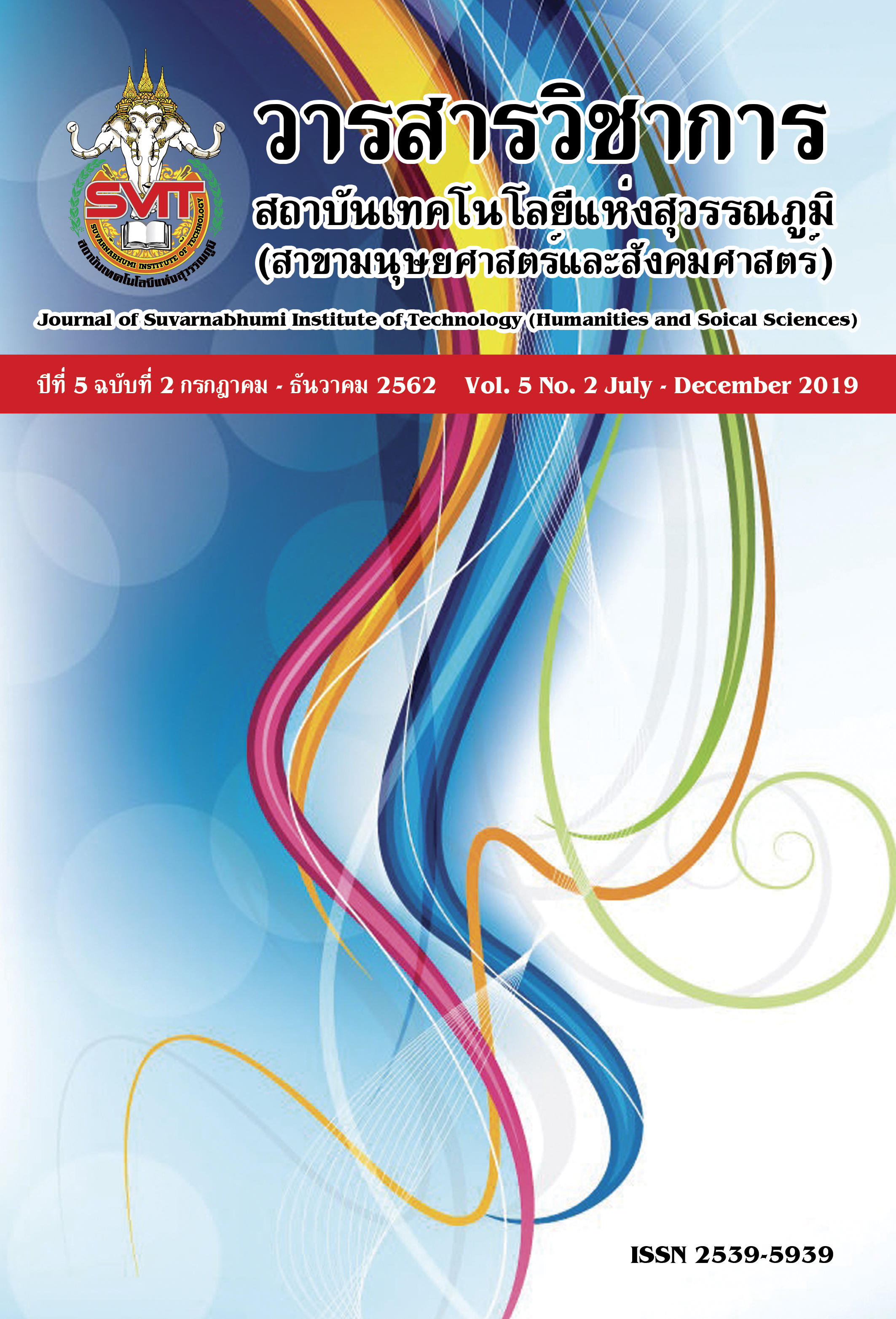THE DEVELOPMENT OF BANGDUAN MODEL FOR HEALTH-PROMOTE BEHAVIORS OF DIABETIC PATIENTS TYPE 2, BANGDUAN SUB-DISTRICT, MUANG DISTRICT, SAMUTPRAKARN PROVINCE
Keywords:
Bangduan Model Health-Promote Behaviors, Social Support, Diabetic Patients Type 2, Program (Food, Exercise, Emotion, Smoking, and Alcohol Cessation)Abstract
The purposes of this research were 1) to develop the Bangduan Model for promoting healthy behaviors in Fasting Blood Sugar control of Diabetic Patients Type 2, 2) to develop the Bangduan Model for health promoting behaviors on glycemic control of Diabetic Patients Type 2 before and after model development 3) to compare knowledge, attitude and practice in life style for the care of Diabetic Patients Type 2 using Health Behavior Changing Program (Food, Exercise, Emotion, Smoking, and Alcohol Cessation),before and after treatment. This study was a quasi-experimental research. The sample group consisted of 66 patients in the area of Bangduan Tumbol Health Promotion Hospital. The sample group consisted of 66 patients. the 33 patients were in experimental group, and 33 patients were in the comparison group did not receive treatment of program of 33 patients. The instruments used in this study were Bangduan Model of health promoting behaviors based on the concept of health belief model. The experimental period took 12 weeks. The IOC of the questionnaire was 0.93. The tools used to collect data were: Knowledge assessment about Diabetes, social support assessment and assessment of blood sugar control behaviors using Health Behavior Changing Program (Food, Exercise, Emotion, Smoking, and Alcohol Cessation). The reliability was 0.86, 0.72 and 0.70. Data were analyze by average, standard deviation and t-test.
The research findings were as follows :1) Bangduan Model of health promoting behaviors developed according to the concept of health belief model, including diabetes education and social support using Health Behavior Changing Program (Food, Exercise, Emotion, Smoking, and Alcohol Cessation.The process of learning management.8 Activities and evaluation.
2) and 3) The effects of applying the health promotion program on blood glucose level, Fasting Blood Sugar, and HbA1c in experimental group were found lower after using the Bangduan Model of health promoting behaviors than before at statistically significant difference at .05 and lower than Patients in comparison groups.
References
ธาริน สุขอนันต์, ณัฐพร มีสุข และ อาภิสรา วงศ์สละ.(2559).ปัจจัยที่มีผลต่อพฤติกรรมการควบคุมระดับน้ำตาลในเลือดของผู้ป่วยเบาหวานโรงพยาบาลส่งเสริมสุขภาพตำบลบ้านสวนอำเภอเมืองจังหวัดชลบุรี. วารสารวิทยาลัยพยาบาลพระปกเกล้าจันทบุรีปีที่ 27 ฉบับที่ 1 กันยายน 2558 - กุมภาพันธ์ 2559. หน้า 93-102.
โรงพยาบาลส่งเสริมสุขภาพตำบลบางด้วน. (2559). รายงานผลการปฏิบัติงานประจำปี 2559. สมุทรปราการ. หน้า 17-58.
โรงพยาบาลส่งเสริมสุขภาพตำบลบางด้วน. (2560). ทะเบียนผู้ป่วยโรคเบาหวาน ปีงบประมาณ 2560. สมุทรปราการ. หน้า 2-24.
Krejcie, R. V. & Morgan, D. W. (1970). Determining Sample Size for Research Activities. Educational and Psychological Measurement, 30(3), pp. 607-610.
Kobayashi A.(2008). Launch of a National Mandatory Chronic Disease Prevention Program in Japan. Disease Management & Health Outcomes.16(4):217-225.
Nolte, E; Knai, C (2015). Assessing chronic disease management in European health systems. Country reports. Technical Report. World Health Organization, Copenhagen, Denmark.
Wilson, T.D. (2000). “Human information behavior.” Informing Science. 3(2), 49-55. Retrieved 1 October, 2010. from https://inform.nu/ Articles/Vol3/v3n2p49-56.pdf
World Bank. (2011). The World Bank Annual Report 2011:Year in Review. Washington, DC. Retrieved from https://openknowledge.worldbank.org/handle/10986/2378
World Health Organization. (2013). Global action plan for the prevention and control of noncommunicable diseases 2013-2020. Geneva: World Health Organization.
Downloads
Published
Issue
Section
License
The articles published are copyrighted by the Sarasas Journal of Humanities and Social Science. The opinions expressed in each article in this academic journal are those of the individual authors and do not reflect the views of Sarasas Suvarnabhumi Institute of Technology. The authors are solely responsible for all aspects of their respective articles. Any errors or inaccuracies in the articles are the sole responsibility of the authors.



